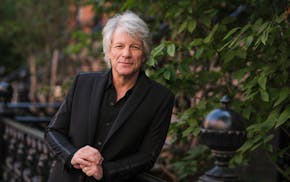The question of child genius is almost universally intoxicating. What makes a prodigy: Is it nurture, or is it nature? And if a prodigy can be made, then could we all, with enough dedication, make our children preternaturally brilliant? (No, if the results of the Baby Einstein craze are to be believed.) And anyway, should we want to? Exceptional childhood does not come with any guarantees about what comes next, which is part of its dark fascination. The unfortunate truth: Precocity comes with an expiration date.
If you are in search of concrete answers to these questions, I am sorry to report this is not your book; there are few secrets here for raising a genius, or for being one. That's good news. Instead, Ann Hulbert, whose "Raising America: Experts, Parents, and a Century of Advice About Children" offered a cultural history of American child-rearing, delivers something infinitely richer — a nuanced study of the lives of 15 child prodigies, as well as the parents and mentors who shaped them, and the theories that (tried to) explain them.
Hulbert has chosen her wunderkinds carefully, recognizing them not only for their individual brilliance but also as pint-size portraits of their eras.
"Different talents seem to attract heightened interest in different decades, inviting scrutiny as auguries for the rest of us," she observes. "At anxious junctures, in other words, you could say we single out the child wonders we deserve — which doesn't mean those remarkable children get treated the way they deserve."
That is not to say that the Hulbert's prodigies are uniformly miserable — on the contrary, they aren't uniformly anything at all. By structuring the meticulously researched book as a series of decidedly unsentimental mini-biographies, Hulbert is able to avoid the temptation to slot her subjects into any predetermined genius molds.
It is through this lens that Hulbert introduces us to a cast of kid geniuses, familiar and unknown: We follow the divergent paths of William Sidis and Norbert Wiener — the so-called Wonder Boys of Harvard — who started college in their tweens, and Henry Cowell, an unschooled music prodigy who became an emblem of inborn talent. We meet contemporary savants on the autism spectrum, and spend a chapter with the lost-to-history girl poets of the Jazz Age. Shirley Temple and Bobby Fischer are here, too, blessedly stripped of their mythology, as are a pantheon of tech pioneers.
But perhaps the most affecting story of all is that of Marc Yu, whom Hulbert meets as a 6-year-old piano/cello prodigy, and again a decade later, as a 17-year-old taking a painful shot at a "nonvirtuoso path."
So some prodigies find freedom in their gifts; others feel trapped by them. Some go onto hyper-achieving adulthoods. Others never match their childhood feats. As Hulbert lays out early, this is the problem with prodigies: They "aren't good grist for moralistic fables after all, whether about ill-fated freaks or about superstars for a meritocratic century."
And while Hulbert valiantly offers an epilogue laced with lessons about the importance of patience and resilience and a strong sense of self, the richness of the book, and the pleasure of it, is in the human stories. All prodigies, after all, are prodigious in their own way.
Rachel Sugar is a writer in New York.
Off the Charts
By: Ann Hulbert.
Publisher: Alfred A. Knopf, 372 pages, $27.95.
Tickets go on sale this week for Bill Nye, Dylan Gossett, Mother Mother, Anne Wilson and Marcia Ball
Complex stories of migration are among the finalists for the Women's Prize for Fiction
Olympian Kristi Yamaguchi is 'tickled pink' to inspire a Barbie doll

